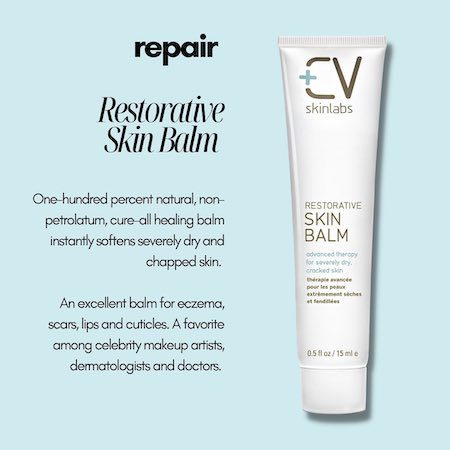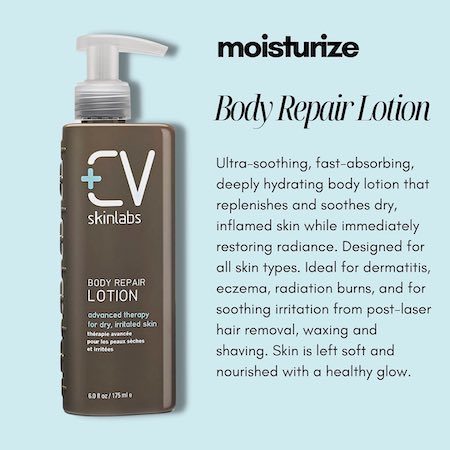If you have eczema, you may be wondering: is eczema seasonal?
Most people with eczema notice that this changes depending on the weather and the humidity (or lack thereof) in the air.
In this post, we explain the possible seasonal nature of eczema and how you can adjust your skincare routine to keep your skin looking its best, regardless of the season.
Is eczema seasonal?
The short answer is: it is possible.
It’s not the same for everyone. But it’s true that your eczema may behave differently in summer than in winter.
This is because the environment affects the skin, even if you do not have eczema. In warmer, humid areas, there is more moisture in the air, which tends to keep the skin better hydrated. It also experiences less stress because it doesn’t have to work as hard to keep the skin hydrated.
In cooler, drier areas there is less moisture in the air. This creates an imbalance between the air and the skin and the skin tends to lose more moisture. It comes under pressure as it tries to retain that moisture.
People with eczema have skin that is already stressed. The immune system mistakenly attacks certain areas of the skin, causing inflammation, irritation and itching. The outer layer becomes damaged and it becomes more difficult for the skin to retain moisture.
Place this stressed skin in a cold, dry climate and it will be more vulnerable to further damage. If you expose this skin to the sun, it will be more difficult to protect itself from UV radiation. Cover this skin with sweat and it will continue to worsen, making the flare-ups worse.
Is my eczema seasonal?
Most likely, you will notice changes in your skin depending on the weather. It is likely that it feels more comfortable at certain times of the year, while at other times it flares up more often.
When these times occur depends on your skin. For many people, the cold, dry air of winter causes more flare-ups. For others, it’s the warmer weather – including sweating, exposure to sunlight and even allergens – that causes more problems.
And for some unlucky souls, all these climatic factors will affect their skin, leaving them with challenges all year round.
Which one are you? Ask yourself the following questions to find out:
- Do you experience more flare-ups between November and February, or between June and August? Or are your flare-ups pretty consistent throughout the year?
- Does your skin suffer more when you travel to a different climate or does it look happier? Is that climate warmer or cooler than your home climate?
- If you suffer from seasonal allergies, do you notice that your skin seems to get worse while you also experience sneezing and watery eyes? At what time of year is this most common?
As you think about your answers to these questions, start to see which season is the hardest on your skin.
How to deal with seasonal dermatitis in winter
If your skin suffers more in winter when the weather is colder, try these tips to reduce flare-ups:
Use a humidifier
As temperatures get colder, the air becomes drier. This also applies to the air in your home. Dry air strips moisture from the skin, making it dry and increasing the risk of eczema flare-ups.
Using a humidifier in your home, especially if you live in a dry climate, can help put moisture back into the air, relieving some of the stress on your skin. At the very least, keep one in your bedroom so your skin can relax at night.
Step up the hydration
Since your skin suffers from dryness, it needs more moisturizer. Depending on how dry the air around you is, you may need to apply more than twice a day. Apply it right after you get out of the bath or shower so you can retain moisture while your skin is still damp.
Dermatologists regularly recommend CV Skinlabs. Both our Calming Moisture and Body Repair Lotion work equally well in summer and winter, providing the skin with what it needs to stay hydrated and healthy. They also contain powerful antioxidants that help protect the skin against environmental aggressions.
Moisturize deeply where necessary
If you have areas of your skin that really suffer from redness, swelling, cracks and eczema, try our Repairing Skin Balm. This award-winning healing balm is one hundred percent free of petrolatum and synthetic fragrances, yet contains wound-healing and soothing ingredients to help your skin heal. It helps retain moisture with a breathable occlusive barrier to support the skin’s healing process.
Use gentle cleansers
During the drier months, it’s crucial to use a creamy, moisturizing cleanser on your face and the rest of your body. Many cleansers can rob the skin of its natural moisture. If your skin feels dry and tight after cleansing, this cleanser is not the right choice for you. Choose another product that will make your skin feel comfortable after cleansing.
Then also think about your detergent. Do your clothes feel soft against your skin or rough and prickly? An unscented fabric softener can help, but if you find that the chemicals irritate your skin, opt for a more natural option to help your skin cope.
Protect exposed skin
Winter is merciless on exposed skin, especially on your hands and face. Cover up with gloves and scarves when outside in cold, windy weather.
Stick to natural fabrics
In winter we often put on more clothes, but this can lead to sweating, which can be irritating to the eczema skin. Choose quick-drying fabrics such as lightweight, breathable cotton. However, avoid thick cotton sweaters if you tend to get hot and sweaty. It also helps to dress in layers that you can shed indoors.
Drink regularly
It is equally important to stay hydrated in both summer and winter. But in winter you are more at risk of becoming dehydrated because your thirst probably won’t work as well as in summer. Always keep a water bottle with you and make it a habit to drink water throughout the day.
Keep your home ventilated
It is common practice to close the house during the winter months, but if you do not air out the rooms, dust mites and mold can enter certain rooms. These are common eczema triggers. Vacuum and dust the house regularly and open the window on nicer days to freshen the air.

How to deal with seasonal eczema in summer
If your skin is more affected in the summer when it is warmer, try the following tips to reduce flare-ups.
Stay cool and avoid sweating
In summer-prone eczema patients, hot weather and sweat can cause flare-ups. So try to stay cool and keep sweating to a minimum. Avoid exercising during the hottest part of the day. Stay in the shade when outdoors and try to ensure your indoor areas are cool as temperatures rise.
If you do sweat, bring a towel to dry off immediately. Then take off your wet clothes and take a cool shower as quickly as possible. Wear loose, 100% cotton clothing to control sweat.
Stay hydrated
This is a good idea for everyone, but if you suffer from eczema, it is crucial to keep our tissues hydrated from the inside out. Take a bottle of water with you and drink regularly.
Consider an air purifier
If you think spring and summer allergens may be playing a role in your symptoms, consider purchasing a home air purifier. It can help remove dust, pollen, and other allergens from the air, keeping them away from your skin.
Moisturize to restore the skin barrier
Eczema damages the outer barrier of the skin, making it more sensitive to environmental influences. Dry skin also contributes to eczema flare-ups.
Hydrate daily with a high-quality moisturizer such as our Calming Moisture and Body Repair Lotion. Both have anti-inflammatory ingredients that help tame itching and redness, while deeply moisturizing with aloe, natural oils and ceramides. Try Rescue & Relief Spray for Face and Body to hydrate, soothe redness, and soothe and cool skin!
Do you notice a seasonal nature of your eczema?
Featured image courtesy Dominika Gregušová via Pexels.






